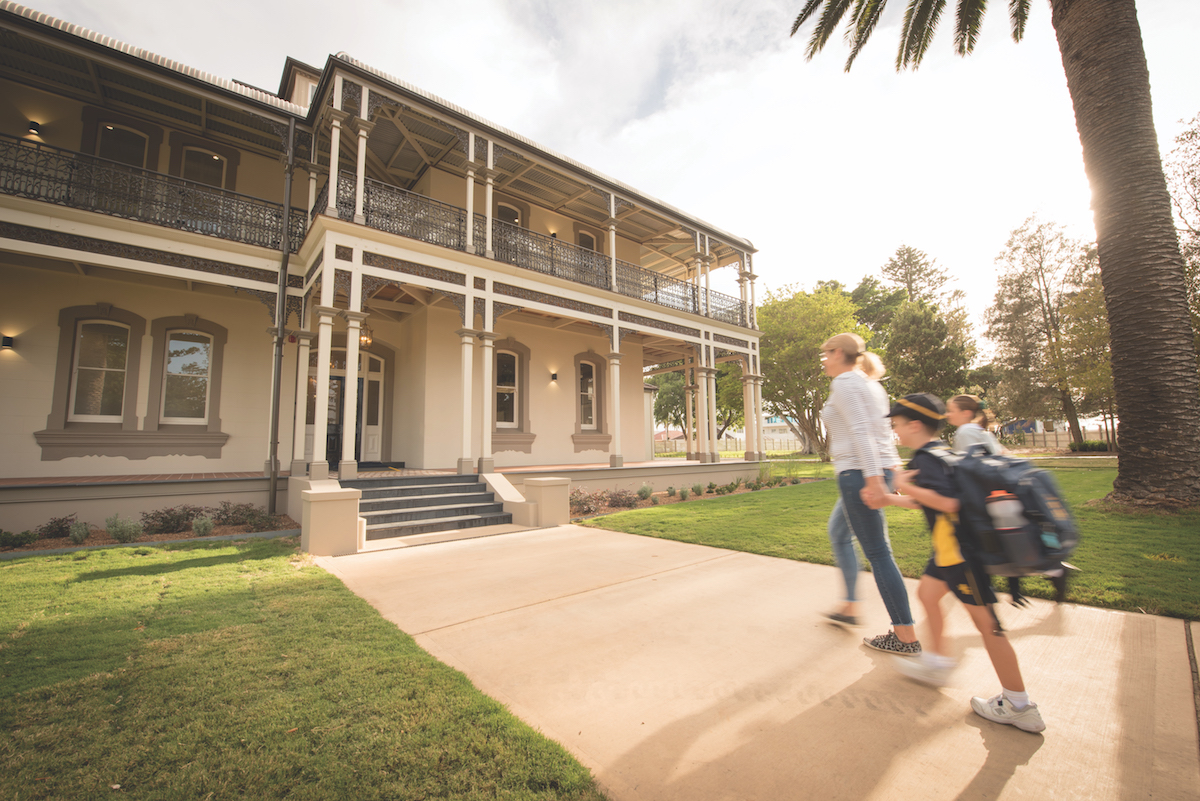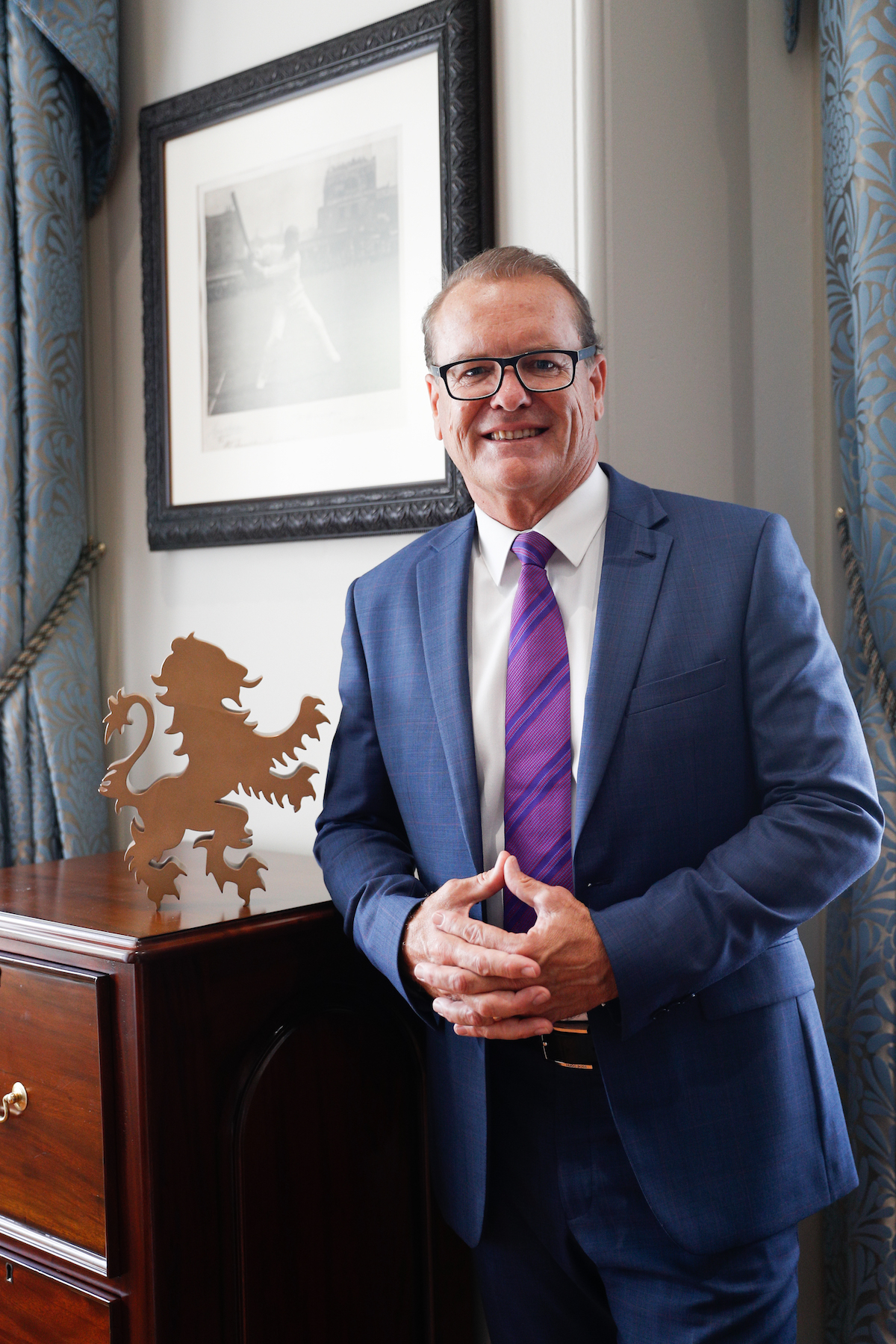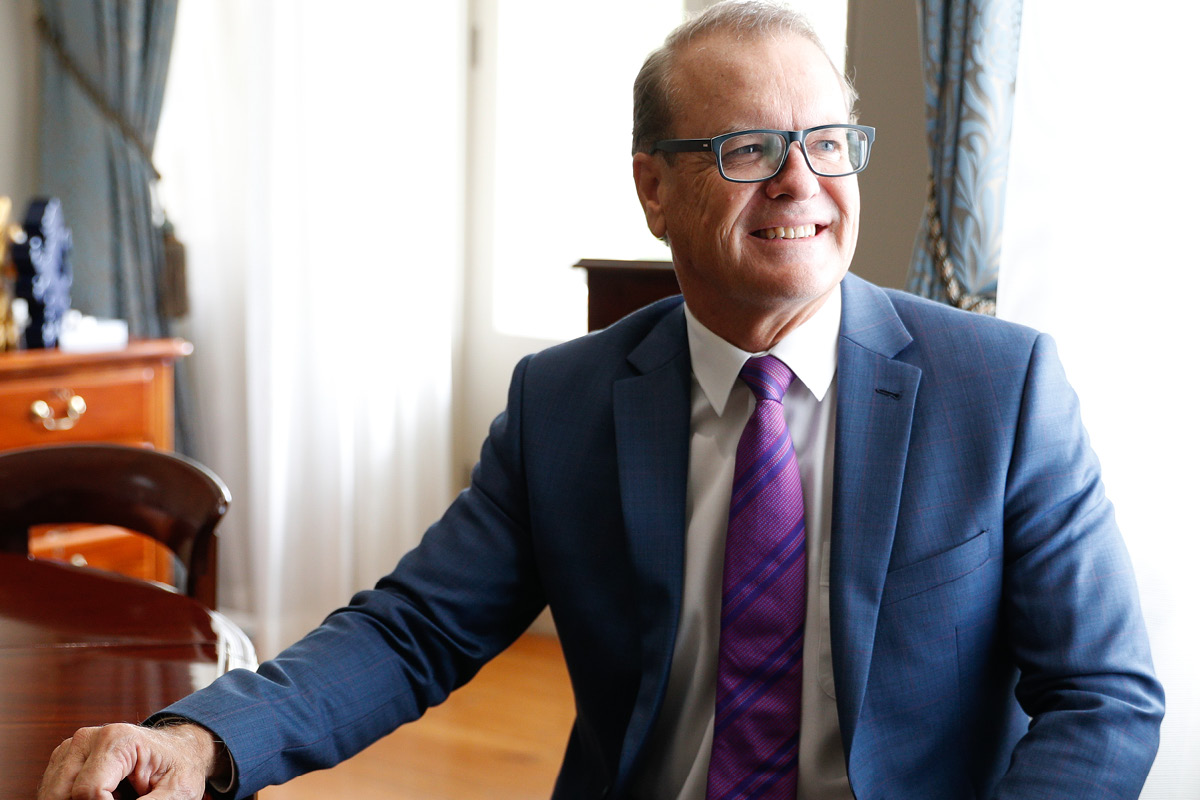One of Sydney’s most storied private schools, The Scots College celebrates 125 years in 2018. Its alumni include notable names in business, science, politics and beyond, counting iconic painter Brett Whiteley, Meriton founder Harry Triguboff, and leading entrepreneur John Winning among its graduates. The college offers an immersive, holistic education for boys from preschool to year 12, including facilities for boarders and a six-month outdoor education camp.
For its Principal, Dr Ian Lambert, who has led the school since 2007, the anniversary is a “great opportunity to help the community to remember some of the important threads that have continued over time”. Yet he is determined the milestone will not be a mere exercise in nostalgia, but will act instead as a springboard for further growth and evolution. “It’s also important as it helps us think strategically about the future.”
Over the past three years, Ian has overseen the development of a 10-year plan for the school and says its implementation is ahead of schedule. “That’s probably a result of the focus on the 125 years,” he explains. “That actually allows you to pull a lot of elements together and stay focused. It has been quite positive in terms of keeping the plan on track and of the changes that are happening.”
Despite its long history, Ian says the college is very much a forward-looking institution. “Innovation is in our blood. I don’t think we’re restricted or held back by our past. In some ways, we’ve framed our understanding of our history as something that is liberating. I think the challenge in a longstanding institution like ours will be that the stakeholders have different positions on the tradition and history and we need to honour all of them. People of an older generation like to know that memories are kept alive.”
Maintaining ties
The college is proactively maintaining these ties to its past with its Living History Project. It also has an active Old Boys Union, which has its own administrative team to keep its former students up to date with happenings at the school as well as organising functions and reunions.
However, it’s not all reminiscing and remembering; Ian says the school regularly draws on the connections and experience of its former students to help equip its current charges. “Whenever we want to develop an innovation or new program in the school, we can draw upon the expertise in our alumni community pretty easily.”

Whenever we want to develop an innovation or new program… we can draw upon the expertise in our alumni community.
Ian gives the recent example of an old boy who is involved with Elon Musk’s rocket start-up at the California Institute of Technology. “He was back in Australia, so we hooked up with him and had him in front of the students talking about science. They loved that. That’s what the Old Boys Union is about. It’s not just about asking people to give money, it’s about actually giving time and support. We have a culture of connecting and adding value, and the Union is a way to maintain that.”
Links with business
Having the rocket scientist come in for a talk was far from a one-off; one of the unique selling points of the college is its proven ability to form deep and mutually beneficial partnerships with the business world. In involving representatives from the world of commerce in the day-to-day life of the school, it aims to foster a spirit of entrepreneurship and social leadership in its students. It has recently constructed an award-winning building, the Lang Walker Business Centre, to provide a specialist space for activity-based learning.
In addition to parents and old boys running seminars and programs for students, Scots is involved in ongoing projects like Australian Business Week, where each student group can draw on the parents and old boys who are involved as mentors as they designed businesses, developed marketing strategies and generally wrestled with the kind of real-world problems they might encounter as they enter the workforce.

This is key to the business partnerships: giving students invaluable early exposure to the commercial world. “Historically, schools can operate in a bit of a bubble,” says Ian. “So, those kinds of partnerships are really good for the education process.
“As we’re moving towards a more blended environment between learning and work – what employers are looking for, what schools are developing and how the economy is functioning – I think those partnerships are very helpful for students and staff to keep up to date. New partnerships are certainly welcome and we’re able to incorporate them into our programs.”
Scots’ partnership with travel agent Time 2 Travel is one example. “We’re a school that has boys going all over the country and the world, so having a company like that on board is extremely helpful,” says Ian. “They understand the culture, expectations and risks, all those sorts of things. We have a deep sense of partnership where we can talk openly to each other and feel as if we’re all working towards the common good. They’re almost more passionate about Scots than we are and I think that’s been a great relationship.”
Another significant partnership is with marketing communications company Imageseven. “They understand the culture and values of the college and they’re proud of Scots and the partnership we have. We’re equally proud of the work they deliver. Communication is one of the great challenges for any organisation but it’s something we never quite get right. They have a spirit of really wanting to get it right and they’re happy to take it on the chin if it’s not exactly right. That’s been very helpful for us.”
Importance of EQ
Asked about the importance of teaching soft skills such as emotional intelligence and interpersonal communication, Ian says this is the “great revolution that is happening and needs to continue to happen”. He is firmly committed to the school producing well-rounded students whose skill sets go far beyond academic aptitude.
“There is plenty of evidence out there of very intelligent, high-performing academic students who do not have the soft skills to make a valuable contribution in an organisation. Increasingly, companies are not operating in linear lines anymore.
They’re having to build relationships and partnerships and tackle projects in a collaborative fashion. They have to be focused on innovation and be able to deal with disruption. All these trends we’re reading about, they are very real and these skill sets will be extremely valuable in that context.
As a student, Ian was very much an all-rounder, captaining his school, playing in its concert band, doing cadets training and participating in the cricket, athletics, rowing and rugby teams. Today, he sometimes still brings the saxophone out for school events. Having seen the value of these extracurricular activities first hand, he has become an advocate for students being well rounded and engaged in their community. The Scots College has traditionally been an inter-school sports powerhouse and Ian says it is a strong believer in the value of this competition.
“We think sport develops a lot of human interaction, insight and skills. If you take nothing else away from playing a sport, you will learn to become a valuable, functioning member of a team and that is an easily transferable skill. Things like work ethic, discipline and goal setting are all important values that a good coach will teach you as part of a successful team.”
Looking forward
Personality wise, Ian describes himself as a maximiser. “I tend to look at an issue or problem and say ‘Well, how can we get the absolute best out of this?’. His ability to come up with ideas is crucial to this approach; staff will often come into his office with one idea and walk out with three. Getting outside the educational environment helps keep the ideas flowing, he says. “I’ve got some good friends and people I connect with who are CEOs.
I think sometimes learning from a different organisation or a different setting helps you move away from groupthink. If you only listen to educational leaders, you all tend to think the same sometimes.”
One obstacle a forward-looking school faces is that it must operate within the confines of relevant curriculums and regulatory systems. “There’s no doubt that, in a school environment, you don’t have the freedom of an entrepreneurial start-up,” Ian admits.
“There are layers of decision making and consultation that you have to go through – to get planning approval, financial approval, those sorts of things – which can be cumbersome. Sometimes, you feel like you’re dragging a pretty heavy ball behind you, but you have to be patient and if it’s a good plan, it’s worth persevering. We’re fortunate that we’re supported by our school council and people who are very conscious of making sure Scots stays relevant long into the future.”
You can sense that change will be upon us within the next decade. Our challenge over time is… how do we stay on the front foot?
Despite these bureaucratic constraints, Ian is determined to ensure the school stays at the forefront of preparing its students for life after school. “You can sense that change will be upon us within the next decade. Our challenge is that while we talk about being a front-foot organisation, how do we stay on the front foot? How do we create clarity around our direction?”
One way the school can keep its identity in a fast-changing educational environment is by recruiting and retaining staff who are a close fit for its values. Scots has been an institution that has selected its key staff carefully and placed a value on continuity. Remarkably, Ian is only the eighth principal the school has had since it was founded in 1893.
“We’re pretty clear about the kind of educational experience, dynamism and values that we are looking for,” he reflects. “We look for staff who are prepared to be adventurous, promote curiosity, face challenges and push through them. Ultimately, we look for someone who wants to come on a journey and make a real contribution.”

